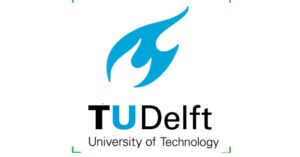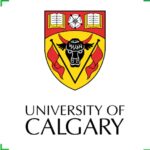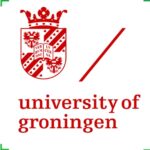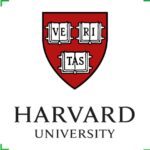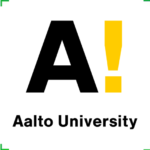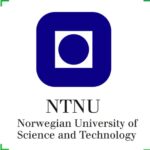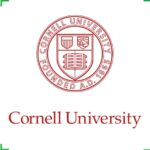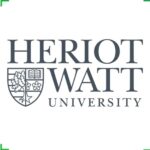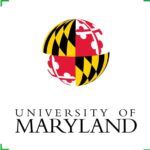Are you a PhD graduate eager to take the next leap in your academic journey? Look no further! Delft University of Technology (TU Delft), Netherlands invites online applications for prestigious Postdoctoral Fellowships across a wide range of research fields. Don’t miss out on this opportunity to propel your career forward.
Candidates interested in Postdoctoral Fellowships can check the details and may apply as soon as possible.
(01) Postdoctoral Fellowship Position
Postdoc summary/title:– PostDoc Position in Quantum Networks
Deadline : Open Until Filled
(02) Postdoctoral Fellowship Position
Postdoc summary/title:– Post-Doc in Restoring Urban Stream for Biodiversity, Climate Adaptation and Urban Quality of Life
We are inviting applications for a 1,5-year position (0.8 FTE) as a postdoc researcher in the interdisciplinary project ReBioClim – Restoring urban streams to promote Biodiversity, Climate adaptation and to improve quality of life in cities. ReBioClim is an Interreg Central Europe project that brings together 12 partners around four urban stream restoration cases in Dresden (Germany), Poznan (Poland), Bratislava (Slovakia) and Jablonec nad Nisou (Czechia), with external expertise on spatial analysis and design from TU Delft.
Building on the tradition of the Department of Urbanism of designing and planning cities with water, as well as the involved research group’s experience in urban riverspace analysis and design, the TU Delft team will conduct urban geospatial analyses considering the morphological, social, ecological and environmental particularities of urban stream corridors. Carried out as a spatial multi-criteria analysis in all case study locations, this activity will reveal how local spatial patterns influence stream restoration potentials and to what extent they are generic and thus transferrable. Conflicts (e.g., between traffic and ecological corridors) and synergies (e.g., low-impact recreation in a riparian zone) across the different layers of analysis will be highlighted.
TU Delft will also lead the joint development of a co-design workshop methodology. Following a multi- and mixed-method approach to data collection in the workshops, the research team will triangulate nuanced information on different facets of stream restoration and its perception by citizens. The co-design methodology will be set up in such a way that comparison and integration of information across the cases will be possible in subsequent activities. The workshop will be designed to engage citizens effectively and make their co-design experience enjoyable, insightful and empowering.
Moreover, TU Delft will contribute to the development of transferrable design principles for social-ecological integration that rely on the nature-based solutions collected or developed during the project. The integrative character of the design principles (e.g., how they meet social and ecological targets jointly) will be made explicit in the description of the principles. All principles will have an illustration that explains the essence of the proposed intervention and thus facilitates their uptake in implementation. After being evaluated and validated by experts, the principles will be incorporated into a best-practice guide and a handbook for integrated urban stream restoration.
Deadline : Open Until Filled
View more Postdoc Positions Click Here
(03) Postdoctoral Fellowship Position
Postdoc summary/title:– Post-Doc in Sustainability Optimisation in Libraries
TU Delft is hiring a researcher for the JPICH-funded project ReVerDi: “Real Versus Digital: Sustainability optimization for cultural heritage preservation in national libraries”. You will be working in an international and interdisciplinary consortium with partners from universities and national libraries in the United Kingdom, Switzerland and the Netherlands. Your job will be to compare physical and digital library processes in theory and praxis in order to optimize environmental, economic and socio-cultural sustainability, while taking into account customer needs. The ultimate goal is to make national libraries future-proof.
As part of the consortium, you will conduct independent research for the benefit of scientific, academic and societal advancement at TU Delft in close cooperation with the National Library (Koninklijke Bibliotheek). You like to explore, structure, analyze and optimize processes and data related to libraries. Ideally you have a background in architecture, and experience in customer and user satisfaction methods. We are looking for a proactive researcher, who can work across academic and artistic contexts, someone who combines attention to detail with critical and creative thinking.
Deadline : Open Until Filled
(04) Postdoctoral Fellowship Position
Postdoc summary/title:–Postdoc Borehole Radar Response Modeling of High-Temperature Brine Filled Fractured Hard Rocks
The GeoHEAT project has the ambition to enable a widespread, secure, and celebtrated exploitation of geothermal energy in Europe.
The GeoHEAT workflow comprises a low cost pre-drilling exploration of multiple prospects and continues to drill the most promising and socially accepted prospects. The following high-resolution borehole characterisation accelerates the drilling success. The georadar imageing of the fracture network is an important part of this last step.
The objectives of this project are to develop and validate a fast forward solver for borehole georadar reflection responses as well as a fast imaging method using advanced processing.
The first step is to establish a fast approximate model for the borehole radar radiation pattern and to use this to compute the radiated field. The radiated field will be propagated as plane waves to large distance and then coupled with the fractures includng full 3D wavefield interactions. After that they can be propagated back as plane waves and synthesized at the receiving antenna taking again the raidation pattern of the antenna into account.
The second step is to modify the modelling method such that it can be used for fast 3D imaging of the fracture network in hard rocks.
The methods and algorithms will be developed in cooperation with Dr Shakas from ETH Zurich, Switzerland. It is foreseen that a temporary stay for a couple of months at ETH will take place.
Deadline : 15th August, 2024.
(05) Postdoctoral Fellowship Position
Postdoc summary/title:– Postdoc Applied Probability Theory for Machine Learning Tasks in Complex Energy Systems
TU Delft is a top tier university and is exceedingly active in the field of Artificial Intelligence (AI) with a strong expertise in energy systems. Energy systems are the backbone of our modern society, but are becoming increasingly complex and challenging to operate as renewable energy, heating and transport sectors are integrated into the system. It’s crucially important that energy systems are sustainable, reliable and effective, now and in the future. TU Delft’s research investigates how the new area of data-driven and scientific computing can contribute to managing energy systems.
We combine ground-breaking machine learning with the reliable theory of the physical energy system. The area of data-driven scientific computing promises to combine statistics, time-frequency analysis, low-dimensional model reductions, and other techniques to extract information from data. With machine learning, we make such information useful for the management of complex energy systems. For example, it is possible to use neural networks to model differential equations that describe dynamics, and for predicting extreme, rare events. Together, the Inteligent Eletrical Power Grids research section and the Delft AI Energy Lab has currently a team of 20+ researchers investigating data-driven scientific modelling for their applicability to complex energy systems. There, you will work closely with Associate Prof Dr. Simon Tindemans and Assistant Prof Dr. Jochen Cremer. You will extend the team and integrate your own ambitious research program within our research visions.
This Postdoc research project is on the theme of sampling operating conditions and network configurations of time-varying systems, closely along a PhD researcher. Along with your colleagues, you will apply probability theory to the transmission and distribution electicity systems. Your work is foundational and we expect a high impact as many machine learning tasks require synthetic generated data. However, currently, the models to generate data have errors due to shifts in data or modelling inaccuracies. Society and grid operators require urgently novel methods to sample various grid topologies and operating conditions, so the energy transition can be accelerated. These sampled conditions require to be physically feasible, relevant and important for the downstream machine learning task. Your methods will be generalizable to many machine learning tasks, resolving an issue typically hindering the adoption of machine learning workflows – the “lack of data”.
This research is part of a multi-partner, large-scale international collaboration with TenneT, EPRI, INESC TEC, DTU and others. You will closely work with our international partners to maximise success of your Postdoc project. There, your task is to design a data synthesizer that realises the methods you develop. You will integrate this synthesizer into a platform so other can test, experiment and verify the next level of AI-application for the Delft Control Room of the Future (CRoF).
Deadline : Open Until Filled
(06) Postdoctoral Fellowship Position
Postdoc summary/title:– Postdoc AfroSAFE Horizon Europe Project – Safe System for Radical Improvement of Road Safety in Low- and Middle-Income African Countries
This postdoc position is part of the European project AfroSAFE: Safe System for radical improvement of road safety in low- and middle-income African countries.
The primary objective of the project is to make a significant progress in advancing the Safe System way of thinking and operating within the road safety work context in African countries. This is reached by exposing the local practitioners and decision makers to the state-of-the-art knowledge and practices within road safety management based on Safe System principles, as well as supporting them by sharing necessary knowledge, tools and methods for road safety improvement—adjusted to the African conditions and in tight cooperation with the local actors.
Several European and African partners are participating in this project, among them for example Lund University, Volvo, and Autoliv in Sweden, University of Dar es Salaam in Tanzania, the University of Education, Winneba in Ghana, and Road Safety Trust in Zambia.
In this project you will be involved in several work-packages and collaborate with the different partners in the project, with the major parts being in three work-packages: road safety management and data, safe infrastructure, and capacity building. To know more about the project and on-going work, please visit the project website.
Apart from working on this project, you can explore the possibilities to be involved in other projects within the Traffic and Transportation Safety Lab. to know more information about our lab, please visit our lab page.
You will also be involved in education activities in two main courses, Traffic Safety (MSc) and Road and Railway Geometric Design (BSc). This will involve teaching some lectures and provide support in projects and exam preparations and evaluations.
Deadline : 15 August 2023
Connect with Us for Latest Job updates
(07) Postdoctoral Fellowship Position
Postdoc summary/title:– Postdoc position on designing medical devices and services towards circular hospitals
Our project ESCH-R (Evidence-based Strategies to create Circular Hospitals: Applying the 10-Rs framework to healthcare) addresses this challenge with its mission to accelerate the adoption of circular interventions in hospitals. Our main research question is: How can hospitals move away from single use medical consumables to make the transition towards circularity? Together with societal partners, our interdisciplinary team will develop circular, safe and scalable strategies. For more information https://esch-r.org. Our Faculty of Industrial Design Engineering takes the lead in Work Package 5: Co-creation and Co-validation of Circular interventions for medical disposables with Stakeholders, in Living Labs in Medical Centres.
Within this Work Package, the TU Delft Faculty of Industrial Design Engineering, Department of Sustainable Design Engineering is seeking a highly motivated Postdoc to do research, develop and implement circular design cases within hospitals in co-creation with stakeholders in the healthcare sector, and to develop design methods that systematically engage them in this process.
The candidate will work in an exciting interdisciplinary environment within the NWO ESCH-R project, collaborating with experts in healthcare, design, and sustainability within the two Living Labs at Erasmus Medical Center (EMC) and University Medical Center Utrecht (UMCU).
We invite applications for a fully-funded Post-Doctoral Researcher to contribute to our pioneering research focused on Circular Design within the healthcare sector, specifically the ESCH-R project. The Postdoc will be positioned at the section Design for Sustainability at the Faculty of Industrial Design Engineering at the Delft University of Technology. In practice the Postdoc will be working at Delft University of Technology and the Erasmus Medical Center. As a Postdoc, you will work closely with the ESCH-R research group but you will take significant responsibility for planning and executing your research. Your findings are expected to be published in journals and shared through popular articles and reports (design manuals). You will also take part in organising and participating in meetings, and co-creation session, workshops, and attend international conferences and national seminars.
Deadline : 16 of August 2024
(08) Postdoctoral Fellowship Position
Postdoc summary/title:– Postdoc Position 3D Representation of Dynamic Scenes
We are looking for a passionate Postdoctoral researcher to join our team and contribute to a cutting-edge project at the intersection of 3D Computer Vision, Composite Fabrication and Aerospace Structures.
Project Overview: The project is dedicated to the monitoring and management of composite fabrication process, ensuring the production of high-performance and highly reliable composite parts. These components play a crucial role in various high-stakes applications including aviation, aerospace, and super-cars. You will focus on creating a detailed volumetric representation of small pieces of composite tapes arranged in a mold before they are fused into a single, solid piece. Such a model facilitates real-time adaptation and precise control of the fabrication process, ensuring that composite tape pieces are distributed evenly, enhancing the structural integrity and reliability of the final product.
Deadline :16 August 2024
(09) Postdoctoral Fellowship Position
Postdoc summary/title:– Postdoc Detection of Contaminations in Wastewater Using Electrochemical Impedance Spectroscopy (EIS)
The research is grounded in the principle that the EIS response is significantly influenced by the physical interactions at the surface between the electrode (used for EIS measurements) and the water (acting as the electrolyte). The objective is to identify an optimized EIS setup, focusing on the electrode material and its surface topology. A selected number of electrodes will be examined for their EIS response with a specific focus on industrial applications for wastewater monitoring.
Deadline :18 August 2024
(10) Postdoctoral Fellowship Position
Postdoc summary/title:– Postdoc Temperature Effects in Carbon Dioxide Electrolysis
A major contributor to climate change are carbon dioxide emissions. To reduce emissions and thus combat climate change, it is imperative that carbon-free sources of energy, such as wind and solar energy are utilized. The intermittent nature of both solar and wind energy is typically not well matched with electricity demand. Consequently, both short- and long term energy storage is necessary on an immense scale. Through carbon dioxide electrolysis, renewable energy can be stored in the form of stable chemical bonds. When combined with carbon dioxide capture, electrolysis that converts CO2 to liquid fuels can form a carbon neutral energy cycle.
This postdoc position is in the research group of Dr. Ruud Kortlever at the Process & Energy department of the Mechanical Engineering faculty. The position will benefit from the existing expertise of the group on electrocatalytic conversions and the established state-of-the-art electrochemical lab which is comprised of many product analysis and material characterization techniques. The position is funded via a Dutch Open Technology project (e-Heat), where we will collaborate with multiple groups at TU Delft and industrial. Since carbon dioxide electrolysis is not nearly as well investigated let alone developed as water electrolysis, little is known about heat generation and its effects. Estimates indicate that approximately 50% of the energy input in carbon dioxide electrolyzers is transformed into heat. When heat transfer aspects are unaccounted for in the design of large-scale
electrolysers, such generation is expected to lead to large thermal gradients impacting efficiency, selectivity and stability. Within this project we specifically aim to to determine the effect of temperature on the electrocatalytic performance as well as material stability. Additionally, we will aim to devise temperature dependency mitigation strategies.You will work together with a diverse team of scientist interested in these topics, and will also be part of the e-Refinery institute that focusses on electrochemical conversion technologies. Given the rapid development and large interest in the technology, we expect you to publish in scientific literature and present the technology to the general public, hence good communication skills in addition to scientific and engineering talent is required.
Deadline : 25 August 2024
View Fully Funded PhD Positions Click Here
(11) Postdoctoral Fellowship Position
Postdoc summary/title:– Postdoc position: Modelling and assessing electrochemical systems
In today’s ever-changing world, where sustainability and resource conservation are of utmost importance, innovative solutions to tackle environmental challenges have become essential. Seawater bicarbonates and nitrates are aimed to be converted into widely used chemicals for agriculture, such as urea, and other valuable carbon and nitrogen feedstocks. ICONIC (Integrated conversion of Nitrate and Carbonate streams) aims at exploring new electrochemical reactions, an integrated and scalable prototype will be developed.
Catalysts based on non-critical raw materials will be designed, and new reaction mechanisms for nitrate and carbonate activation and coupling will be explored, to sustainably produce urea and high-value chemicals. Direct co-electrolysis of CO2 and nitrates from seawater is aimed to be achieved, a process that has never been reported to date. Moreover, it will be implemented on-site and powered by renewable energy sources. Advanced computational models and precise assemblies of high-performance electrodes will be deployed, demonstrating a scalable lab prototype suitable for the integrated remediation of polluted seawater into urea.
This postdoc will investigate the economic and environmental implications of the different C/N products from electrochemical conversion through the lens of process design, techno-economic assessment and life cycle assessment. We will do a market analysis for the various products.
Deadline :August 25, 2024
(12) Postdoctoral Fellowship Position
Postdoc summary/title:– Postdoc position: Designing electrocatalysts using atomic layer deposition
In today’s ever-changing world, where sustainability and resource conservation are of utmost importance, innovative solutions to tackle environmental challenges have become essential. Seawater bicarbonates and nitrates are aimed to be converted into widely used chemicals for agriculture, such as urea, and other valuable carbon and nitrogen feedstocks. ICONIC (Integrated conversion of Nitrate and Carbonate streams) aims at exploring new electrochemical reactions, an integrated and scalable prototype will be developed.
Catalysts based on non-critical raw materials will be designed, and new reaction mechanisms for nitrate and carbonate activation and coupling will be explored, to sustainably produce urea and high-value chemicals. Direct co-electrolysis of CO2 and nitrates from seawater is aimed to be achieved, a process that has never been reported to date. Moreover, it will be implemented on-site and powered by renewable energy sources. Advanced computational models and precise assemblies of high-performance electrodes will be deployed, demonstrating a scalable lab prototype suitable for the integrated remediation of polluted seawater into urea.
The postdoc will investigate the use of atomic layer deposition (ALD) to make novel electrocatalysts for C/N-conversion, and approaches to use ALD to protect these catalysts and increase their lifetime. In collaboration with another postdoc the catalysts will be tested under realistic conditions.
Deadline : August 25, 2024
(13) Postdoctoral Fellowship Position
Postdoc summary/title:– Postdoc Electrochemical Conversion of Nitrate and Carbonate Streams
The carbon (C) and nitrogen (N) cycles regulate life-balance on Earth. However, our heavy reliance on fossil fuels during the last century has led to an increasing excess of anthropogenic CO2 emissions, a powerful greenhouse gas. In addition, the deployment of large-scale agriculture, the associated deforestation and land use intensification, added to the use of fertilizers, has led to an alarming cumulative increase of nitrates in soil and water
streams. Within the framework of the ICONIC project, this position will pursue the development of an electrochemical route to upgrade carbonate and nitrate/nitrite species from seawater into valuable chemicals such as urea. Powered by renewables, this offers a path to ecosystem restoration and to balancing the carbon and nitrogen cycles.
This postdoc position is in the research group of Dr. Ruud Kortlever at the Process & Energy department of the Mechanical Engineering faculty. The position will benefit from the existing expertise of the group on electrocatalytic conversions and the established state-of-the-art electrochemical lab which is comprised of many product analysis and material characterization techniques. The position is funded via an EIC Pathfinder project (ICONIC), where we will collaborate with partners from multiple European countries. We are very much interested in investigating different electrocatalytic materials for the reduction of carbonate and nitrate to urea and other C-N products, and implementing these materials in an electrolyzer that can operate at high current densities. Moreover, we aim to use carbonate and nitrate from seawater, and are therefore interested in mitigating and negative effects from the other constituents in seawater such as chlorine. You will work together with a diverse team of scientist interested in these topics, and will also be part of the e-Refinery institute that focusses on electrochemical conversion technologies. Given the rapid development and large interest in the technology, we expect you to publish in scientific literature and present the technology to the general public, hence good communication skills in addition to scientific and engineering talent is required.
Deadline :25 August 2024
(14) Postdoctoral Fellowship Position
Postdoc summary/title:– Postdoc Single-Molecule Biophysics at 2D Material Interfaces
We are inviting applications for a postdoc position in bionanophotonics at TU Delft in the group of Dr Sabina Caneva.
Single-molecule platforms based on 2D materials are emerging as novel tools for low-cost, high-resolution and high-throughput detection of biomolecule mechanics and dynamics. On one hand, they can enable important discoveries in biomolecular function at the single-molecule level and, on the other hand, they show great promise for applications in molecular diagnostics. In this interdisciplinary project you will combine cutting-edge nanofabrication techniques, 2D materials optoelectronics, and fluorescence imaging to innovate single-molecule detection platforms. You will have the opportunity to develop new fundamental insights into light-matter interactions at the nanoscale for application in next-generation protein fingerprinting.
This position is funded by the ERC StG project SIMPHONICS. You will be based in the Precision and Microsystems Engineering Department at TU Delft, where you will have access to state-of-the-art facilities, labs and equipment to develop this line of research in a vibrant and interdisciplinary team of physicists, materials scientists, engineers and biochemists.
Deadline : 27 August 2024
(15) Postdoctoral Fellowship Position
Postdoc summary/title:– Postdoc Offshore Geotechnics from Monopile Installation to Wind/Wave/Seismic Soil Structure Interaction
In this role, the selected applicant will explore the cyclic soil-monopile interaction using state-of-the-art experimental data (geocentrifuge) and numerical modelling. This research aims to address the scientific challenges of comprehending the fundamental nature of cyclic behaviour in both cohesive and cohesionless soils and translating this understanding into practical engineering models.
As a post-doctoral researcher, you will:
- Lead research on cyclic soil-monopile interaction in offshore wind turbines using advanced experimental and numerical modeling techniques.
- Address fundamental challenges in understanding and conceptualizing cyclic behaviour of monopiles in various soil types (cohesive, cohesionless soils, and soil mixtures), under diverse loading conditions (wind, wave, and seismic).
- Develop, set up, and calibrate advanced 3D Finite Element (FE) monopile models on PLAXIS and OpenSees, and implement constitutive models/elements for simulating geotechnical problems of offshore monopiles.
- Develop, set up, and calibrate advanced cyclic soil reaction models for simulating geotechnical problems of offshore monopiles.
- Collaborate on research projects such as MIDASclay (cyclic lateral behaviour of monopiles in cohesive soils), DONISIS (seismic modeling of monopile-supported wind turbines in liquefiable soils), and GeoWin (tool development for soil investigation and offshore foundation design). Coordinate work packages and manage tasks, including planning, execution, and monitoring progress to ensure successful and timely completion.
- Engage with industrial partners, demonstrating excellent communication skills, and deliver project reports.
- Support the development of doctoral students and contribute to MSc level education for courses relating to Soil Structure Interaction.
Deadline :31 August 2024
(16) Postdoctoral Fellowship Position
Postdoc summary/title:– Postdoc enzyme engineering – EnzIm2Flow – engineering targeted enzyme immobilization for optimal conversion and product recovery using flow chemistry
A sustainable chemical industry that relies less on fossil resources requires new ways to convert renewable resources like vegetable oils into useful compounds. Oleate hydratases are enzymes that can do this job very efficiently by adding water to fatty acids to produce hydroxyl fatty acids, which are important in the polymer and cosmetic industry. Until now using this enzyme commercially has been difficult due to the physical properties of the hydroxyl fatty acids and the enzyme’s low stability. The EnzIm2Flow project funded by NWO’s Open Technology program is focussed on using the enzyme in a controlled and optimized continuous flow process, where it’s immobilized to increase its stability and efficiency.
As a Postdoc enzyme engineering at TU Delft you will perform fundamental, application-inspired research in the area of biocatalysis and engineering as a key experimental approach as part of the EnzIm2Flow project. Specifically you will engineer enzymes to improve their robustness and for novel immobilization approaches and structurally and functionally characterize the engineered enzymes. The engineering approaches will include the incorporation of non-canonical aminoacids. You will be the backbone of the project, supporting the activities of your team.
The project is a collaboration between Dr. Hagedoorn and prof. Hanefeld in Delft. The Biocatalyis Section has an excellent reputation in its field with state-of-the-art facilities and leading scientists in the areas of biocatalysis, enzymology, organic chemistry and molecular imaging. Our biocatalysis community has a supportive atmosphere with regular meetings, seminars and social activities. We’re confident you’ll soon feel at home with peers who are just as passionate as you are about enzymes.
Deadline : Open Until Filled
(17) Postdoctoral Fellowship Position
Postdoc summary/title:– Postdoc Detection of Criminal Networks
Deadline : August 31, 2024
(18) Postdoctoral Fellowship Position
Postdoc summary/title:– Postdoc Design and Control of Electromagnetic Actuator for Precision Mechatronics Applications
Mechatronic systems require continuous advancements to meet the growing demands for precision and energy efficiency. Over the last decade, the precision industry has focused on managing thermal effects to enhance accuracy. High-precision equipment often uses electromagnetic (EM) actuators in large motion systems to achieve sub-nanometer positioning accuracy. However, these actuators suffer from thermal dissipation due to ohmic heating of the coil. In levitation stages, EM actuators provide both propulsion (dynamic) and levitation (static) forces, with the latter causing significant heat dissipation, especially at standstill, thus impacting accuracy. Reducing heat dissipation in EM actuators is crucial for these applications.
This project aims to introduce a new class of EM actuators based on tuneable magnets (TM). A TM combines a low coercive permanent magnet (PM) with a coil to adjust the PM’s magnetization and thus the output force/torque. TM actuators offer the versatility of conventional EM actuators along with the thermal stability and energy efficiency of passive devices like permanent magnetic bearings. Initial feasibility studies have shown the potential of TM actuators for static applications. However, theories on efficient tuning and optimal electromagnetic circuit design are needed for dynamic precision motion systems. Furthermore, accuracy and efficiency improvements in tuning are necessary for high-end applications.
Deadline : 31 August 2024
(19) Postdoctoral Fellowship Position
Postdoc summary/title:– Postdoc Position – Proving the Reuse Potential of Construction Objects with Evidence-based Circularity
An innovation ecosystem is currently being developed for the industrial replacement and renovation of bridges in the Netherlands. This is done with the help of a large government incentive fund, called the National Growth Fund and the Province of North Holland. In an approved programme, called Future-proof Living Environment, a large number of contractors, clients, engineering firms, suppliers and knowledge institutions unite in a joint mission to make the replacement task manageable and circular in a programmatic and industrial way. In addition, European legislation requires the infrastructure sector to keep transparent records of the sustainability and circularity of their assets.
Therefore, it is important that the government’s circular goals can be achieved with the help of factual evidence. This requires a streamlined process for an industrial chain that is able to focus on high-quality reuse. Since the evidence must actually be useful in promoting reuse, it is not sufficient to rely solely on composite indices or indicators. Therefore, this research focuses on developing a new principle of “evidence-based circularity”. This means that the burden of proof of specific measurements must be transparent and relatable. As a result, this evidence can be traced back to the proposed circular measures.
To achieve this, you will develop a model that can directly capture the impact of proposed circular measures. Such as, for example, extending the lifespan and reusing of elements. These measures include digital techniques (especially trading platform, materials passport, certifications, and blockchain technology), industrial techniques (especially Industrial Flexible and Demountable (IFD) design and construction, off-site production, on-site assembly, modularity) and programmatic techniques (especially joint purchasing, project bundling).
Development of such a model prerequires in-depth understanding of, on the one hand, the information needs of key stakeholders in circular construction and, on the other hand, the potentials of digital technologies to provide such information.
Within the research, standards for measuring circularity are applied in an integrated way to activities in the industrial chain. The inventory of these standards is organised as part of a living lab. The research focuses on feeding the model with this inventory and then actually carrying out the measurement and monitoring activities in the living lab.
Deadline : Open Until Filled
(20) Postdoctoral Fellowship Position
Postdoc summary/title:– Postdoc Position – Foundations for Open Digital Infrastructure in the Circular Transition
An innovation ecosystem is currently being developed for the industrial replacement and renovation of bridges in the Netherlands. This is done with the help of a large government incentive fund, called the National Growth Fund and the Province of North Holland. In an approved programme, called Future-proof Living Environment, a large number of contractors, clients, engineering firms, suppliers and knowledge institutions unite in a joint mission to make the V&R task manageable and circular in a programmatic and industrial way. In addition, European legislation requires the infrastructure sector to keep transparent records of the sustainability and circularity of their assets.
Therefore, it is important that an open IT infrastructure can ensure a continuous process of information provision and exchange between multiple stakeholders within industrial chains throughout the entire life cycle of assets. The nature of this infrastructure ensures that the governance of the information is implemented in a decentralized manner. As a result, individual parties within the chain retain ownership and control over their own information while ensuring the strictly necessary transparency. This facilitates a digital twin in which all current data and information from assets can be connected. This research is being carried out in collaboration with Circularise, a start-up that develops key technology for this IT infrastructure in accordance with open-standard principles. In this research, we design and develop a usable and public system based on information exchange protocols. With this infrastructure, we are able to create a complete procedure in the program and develop a prototype application.
This stimulates the circular working method of the civil infrastructure sector by taking concrete steps towards the use of open standards. This directly affects the circular procurement of public clients. A tangible example of a prototype application is the support system modelled after the Carfax report. This allows information to be shared in a secure, certified and transparent manner during public tenders.
Deadline : Open Until Filled
(21) Postdoctoral Fellowship Position
Postdoc summary/title:– Postdoc positie – Bevorderen van aantoonbaar hergebruik van infra objecten met evidence-based circularity
Op dit moment wordt er een innovatie ecosysteem vormgegeven voor het industriële vervangen en renoveren van bruggen in Nederland. Dit gebeurt met behulp van een groot stimuleringsfonds van de overheid, genaamd het Nationaal Groeifonds en de Provincie Noord Holland. In een goedgekeurd programma, genaamd Toekomstbestendige Leefomgeving, verenigen een groot aantal aannemers, opdrachtgevers, ingenieursbureaus, leveranciers en kennisinstellingen zich in een gezamenlijke missie om de V&R-opgave op programmatische en industriële wijze beheersbaar en circulair te krijgen. Daarnaast vereist de Europese wetgeving dat de infrastructuur sector transparant wordt oer de duurzaamheid en circulariteit van haar assets.
Daarom is het van belang dat de circulaire doelen van de overheid gehaald kunnen worden met behulp van feitelijke bewijsvoering. Hiervoor is een gestroomlijnd proces noodzakelijk voor een industriële keten die in staat is in te kunnen zetten op hoogwaardig hergebruik. Omdat de bewijsvoering ook daadwerkelijk van nut moet zijn voor het bevorderen van het hergebruik, volstaat het niet om enkel uit te gaan van samengestelde indices of indicatoren. Daarom richt dit onderzoek zich op het ontwikkelen van een nieuw principe “evidence-based circularity”. Dit wil zeggen dat de bewijslast van specifieke metingen transparent en relateerbaar moet zijn. Daarmee kan dit bewijs worden teruggevoerd naar de voorgestelde circulaire maatregelen.
Om dit te bereiken ga jij een model ontwikkelen die de impact van voorgestelde circulaire maatregelen direct kan vangen. Zoals bijvoorbeeld levensduurverlenging en hergebruik van elementen. Bij deze maatregelen kun je denken aan digitale technieken (m.n. handelsplatform, materialen paspoort, certificeringen, en blockchain technologie), industriële technieken (m.n. Industrieel Flexibel en Demontabel (IFD) ontwerpen en bouwen, off-site production, on-site assembly, modulariteit) en programmatische technieken (m.n. gezamenlijke inkoop, project-bundeling).
Dit vraagt om een diepgaand begrip van zowel de informatiebehoeften van stakeholders bij circulaire infrastructuur als de mogelijkheden van digitale technologieën om aan die behoeften te voldoen.
Binnen het onderzoek worden normen van het meten van circulariteit op integrale manier toegepast op activiteiten in de industriële keten. De inventarisatie van deze normen wordt georganiseerd als onderdeel van een proeftuin. Het onderzoek richt zich op het voeden van het model met deze inventarisatie en om erna daadwerkelijk de meet- & monitoringsactiviteiten in de proeftuin uit te voeren.
Deadline : 1 september 2024
(22) Postdoctoral Fellowship Position
Postdoc summary/title:– Postdoc in Multiscale Modeling and Simulation of Fractured Reservoirs for Subsurface Storage of Carbon Dioxide and Green Hydrogen
Subsurface geological formations contribute significantly to decarbonization of energy sector and climate action. To achieve a green net-zero world, carbon dioxide is expected to be stored in the subsurface formations by 3-10 Gt per year. Moreover, 20 Mt of green hydrogen per year is expected to enter the EU energy market by 2030. Such a transfer towards green gas can happen successfully if large-scale storage technologies are also developed. For that depleted hydrocarbon reservoirs and aquifers are seen as the viable options. Safe and effective utilisation of these formations require advanced simulation techniques, which allow for multiscale heterogeneities treatments to contain the uncertainties to a societally acceptable level. Many of these geological formations are fractured. Fractures are heterogeneous and can be flow highways or even as sealing barriers. Their applicable, accurate and scalable simulation treatment in the computational domain requires strategies which allow for embedded approaches along with multiscale strategies. Such strategies would then need to allow for dynamic crossing of the resolutions, with adaptively refined mesh capacities, to contain the spurious numerical errors specially at the locations of high sensitivities and fluid fronts.
The postdoc researcher will lead advancement of our existing methodologies and open-source inhouse simulator DARSim to allow for simulation of carbon-dioxide and hydrogen flow in the fractured subsurface formations. This will allow to quantify the impact of fractures on security of the storage, whether permanent (as for carbon-dioxide) or temporarily/cyclic (as for hydrogen). She/he is motivated to contribute to teaching and student mentorship activities, as well as academic organizational activities.
Deadline : September 1, 2024
(23) Postdoctoral Fellowship Position
Postdoc summary/title:– Postdoc Ethics and Philosophy of Technology
Military AI-enabled systems pose serious ethical, legal and societal challenges. There should be meaningful human control (with clear responsibilities for the people involved) of the development and deployment of the automated processes in military operations. Such control should accommodate for concerns related to the increasing levels of AI-enabled machine autonomy in defence, as well as for AI technologies that play a role in providing situation awareness, collecting intelligence or cognitive warfare. All these applications have serious ethical and legal ramifications as they may bias decision-making, mean handing over some degree of autonomy to machines and impact human agency, human dignity and human rights. We therefore need systematic consideration of ethical, legal and societal aspects (ELSA) in the use of AI in the defense domain.
These considerations should ultimately inform us which AI-enabled systems are acceptable and which are not, under what conditions/circumstances. For the current unclarity on ELSA concerns over AI leads to both “over-use” (e.g., using too many AI-systems in too many situations, with lack of consideration of consequences) and “under-use” (e.g., not using AI, due to lack of knowledge or fear of consequences) of AI. Both over-use and under-use of AI in defense may lead to risks of protecting the freedom, safety and security of society.
This post-doc position will focus on a methodology for the safe and responsible use of AI in the defence domain, with particular interest in questions of responsibility and accountability of the people involved. The methodology will have to ensure ethical, legal and societal alignment in all stages of design, acquisition, and operationalization of autonomous systems and military human-machine teams. The project may also identify codesign methods for designing human-machine teams, which can be used to achieve ethical, legal, and societal compliance. It will help identifying the algorithms to be used to ensure this compliance, and will support the efforts to incorporate ethical, legal and societal aspects in a system-of-AI-systems.
The position is part of the ELSA (ethical legal societal aspects) Lab defence, granted under the NWA call “Human-centred AI for an inclusive society – towards an ecosystem of trust”, which focuses primarily on use cases for AI in countering cognitive warfare, in (autonomous) drones and in (non-lethal) autonomous robots. The successful candidate will work under the direct supervision of Stefan Buijsman, assistant professor in the ethics of technology and Mark Neerincx, full professor in Human-Centered Computing. In addition you work with the partners in this Elsa Lab consortium who have ample experience in (military) AI-systems, with a focus on human factors (TNO), legal (Leiden University, Asser), ethical (TU Delft), societal (HHS), and technical (NLDA) aspects. Furthermore, it is part of the Delft Digital Ethics Centre, a group of 30 philosophers of digital technologies that work on ethics by design in a wide range of domains.
Deadline : 1 September 2024
(24) Postdoctoral Fellowship Position
Postdoc summary/title:– Junior Researcher / Scientific Programmer (Multi-)Models of Infrastructure Interactions
Infrastructures provide the basis for many critical societal processes, from economy to education, from healthcare to housing and more. The infrastructures are increasingly interdependent on each other, from providing mutual services (like energy and data for mobility), via to providing alternative capacity (like rail, road and waterways), to competing for the same space (like in urban contexts).
Models and simulations are key tools for decision makers, allowing them to build, design, and plan infrastructures. As the need for integrated, cross system insight rises, current monodisciplinary and mono-sectoral models are increasingly unable to provide the required insights. A promising direction is multi-modelling, where different models and simulations are combined in an ecosystem of tools, that can be used and re-used in different configurations. The model ecosystem, and the socio-technical approach to modelling poses new methodological and technical challenges.
Models are instrumental for supporting the social process of decision-making, and are not a goal in themselves. Key model and software requirements will stem from the users and the social process that they are involved in. You, as a developer will be involved in these processes where needed, but are not expected to organize and manage them.
Work will consist of two main lines, platform development and model development support. Platform development involves integration of existing open-source platforms MOVICI and multi-model.nl, identifying new requirements and features from the users and developing them. Model development includes software implementation and general computing and data analysis support for researchers, modelers and modelling and simulation theorists. You may also be asked for advice on the most suitable software solutions, data structures, architectures, code redesign where necessary.
Goal of the position is the further development of the MOVICI and multi-model.nl platform towards a tailored tool for broad impact analysis in a complex stakeholder environment. The later means a lot of attention for describing and modeling scenario’s, a wide range and flexible approach towards evaluative criteria for these scenario’s, clear visualizations in space and time on scenario development, and interconnection with other modeling platforms.
We are looking for a person who enjoys (re)design and implementation “done right”, with long term maintainability, reusability and generalizability being important, without losing sight of practicality. Willingness to work closely with domain experts and modeling theorists is paramount. Correct and clean representation and implementation of the relevant concepts is much more important than churning out features quickly. You will be working in research focused academic setting, so affinity with science, scientific methods and processes is useful.
Deadline :1 September 2024
(25) Postdoctoral Fellowship Position
Postdoc summary/title:– Postdoc Modelling of a Combustion Chamber for Solid Oxide Fuel Cells – Gas Turbine (SOFC-GT) for Aviation
Deadline : 6 September 2024
(26) Postdoctoral Fellowship Position
Postdoc summary/title:– Postdoc Modeling of Hydrogen Interaction with Material
To gain insights on how hydrogen interacts with the material and leads to the observed changes in mechanical properties, atomistic simulations based on the Density Functional Theory (DFT) and Molecular Dynamics (MD) will be performed within this project. These simulation techniques provide the necessary insight into the hydrogen interaction with the underlying microstructural features of the material at the nanoscale. To this end, the adsorption energies of hydrogen on Fe-based metal surfaces will be computed using DFT (incl. effect of oxygen and moisture). MD simulations will be performed to model the diffusion of hydrogen atoms and their interaction with the microstructure.
This position is primarily scientific in nature, but the Post-Doc is expected to contribute to the creation of a large-scale follow-on project. The project will be carried out in the research groups of Dr. Othon Moultos and Dr. Poulumi Dey. The two departments involved in this project are Materials Science and Engineering (MSE) and Process & Energy (P&E) of TU Delft.
Deadline : 15 September 2024
(27) Postdoctoral Fellowship Position
Postdoc summary/title:– Postdoc Digital Twin Development for Optimising Crossing Geometry Profiles
Deadline : 15 September 2024
(28) Postdoctoral Fellowship Position
Postdoc summary/title:– Postdoc Data-Driven Concrete Mix Design, Properties Prediction, and Production Quality Control
The Faculty of Civil Engineering and Geosciences, Department of Engineering Structures, is seeking a postdoctoral researcher to advance the application of AI/machine learning in the field of concrete engineering. The successful candidate will focus on predicting concrete strength properties, optimising mix designs, characterising materials, discovering new materials and ensuring production quality control. This research will utilise both laboratory and field data, facilitated by the implementation of advanced sensor systems.
The primary objective of the project is to deepen the understanding of the intricate relationships between raw material properties, mix proportions, processing conditions and the resulting engineering properties of concrete. This understanding will lead to significant improvements in process optimisation, reducing the need for large safety margins in mix design. Ultimately, the results of this research will help to reduce the energy consumption, costs and carbon emissions associated with concrete production. This role provides a unique opportunity to make a significant contribution to the field of sustainable construction through advanced data-driven methodologies.
Your main responsibility will be to carry out the postdoctoral project and conduct research in data-driven concrete science. You will have the opportunity to influence the details of the research according to the needs of the project, with the possibility of combining experimental work with modelling and working in close collaboration with industry. As a postdoc, you will be involved in teaching and supervising students in the department.
The project will be carried out at TU Delft in the Faculty of Civil Engineering and Geosciences (CEG) in collaboration with the Faculty of Electrical Engineering, Mathematics and Computer Science (EEMCS). The position is located in the Concrete Structures Group within the Engineering Structures Department of the CEG.
The Department of Engineering Structures focuses on the development of resilient, smart and sustainable structures and infrastructures. Our aim is to meet societal demands in transportation, the energy transition and sustainable reuse. Research themes include dynamics of structures, mechanics of materials related to e.g. climate change, modelling and design of railway systems, multi-scale modelling of pavement materials and structures, reuse of materials, structures and parts of structures, assessment methods for structures, smart monitoring techniques, design methods, replacement and renovation of civil infrastructure and development of new materials and maintenance techniques. Our unique Macro Mechanics Laboratory facilities support full-scale testing, monitoring and modelling of structures to facilitate implementation of innovations. The department delivers both groundbreaking research and world-class education for undergraduate and graduate students. As a team, we represent different backgrounds, skills and views. We foster an inclusive culture, as our combined identities, attitudes and ambitions widen our perspective and make up our strengths.
Deadline : 15 September 2024
About Delft University of Technology (TU Delft), Netherlands –Official Website
Delft University of Technology, also known as TU Delft, is the oldest and largest Dutch public technical university. Located in Delft, Netherlands, it is consistently ranked as one of the best universities in the Netherlands, and as of 2020 it is ranked by QS World University Rankings among the top 15 engineering and technology universities in the world.
With eight faculties and numerous research institutes, it has more than 26,000 students (undergraduate and postgraduate) and 6,000 employees (teaching, research, support and management staff).
The university was established on 8 January 1842 by William II of the Netherlands as a Royal Academy, with the primary purpose of training civil servants for work in the Dutch East Indies. The school expanded its research and education curriculum over time, becoming a polytechnic school in 1864 and an institute of technology (making it a full-fledged university) in 1905. It changed its name to Delft University of Technology in 1986.
Dutch Nobel laureates Jacobus Henricus van ‘t Hoff, Heike Kamerlingh Onnes, and Simon van der Meer have been associated with TU Delft. TU Delft is a member of several university federations, including the IDEA League, CESAER, UNITECH International and 4TU.
Disclaimer: We try to ensure that the information we post on JobPetal.com is accurate. However, despite our best efforts, some of the content may contain errors. You can trust us, but please conduct your own checks too.
Related Posts
- 16 Postdoctoral Fellowship at University of Calgary, Canada
- 03 Postdoctoral Fellowship at University of Groningen, Netherlands
- 19 Postdoctoral Fellowship at Ohio State University, United States
- 14 Postdoctoral Fellowship at Harvard University, United States
- 04 Postdoctoral Fellowship at Aalto University, Finland
- 15 Postdoctoral Fellowship at Rutgers University, New Jersey, United States
- 15 Postdoctoral Fellowship at King’s College London, United Kingdom
- 07 Postdoctoral Fellowship at NTNU, Norway
- 15 Postdoctoral Fellowship at Cornell University, New York, United States
- 09 Postdoctoral Fellowship at Queen Mary University of London, United Kingdom
- 05 Postdoctoral Fellowship at Heriot-Watt University, Edinburgh, United Kingdom
- 12 Postdoctoral Fellowship at University of Maryland, United States
